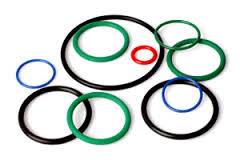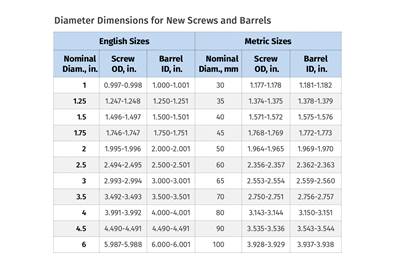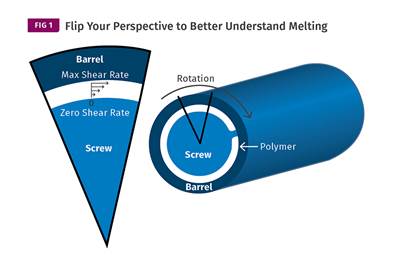Resins & Additives for Sustainability in Vehicles, Electronics, Packaging & Medical
Material suppliers have been stepping up with resins and additives for the ‘circular economy,’ ranging from mechanically or chemically recycled to biobased content.

Röhm will promote its “green” side by showcasing a growing portfolio of recyclable Plexiglas acrylic molding compounds. (Photo: Röhm GmbH)
The theme of the “Circular Economy” will dominate K 2022 next month in Düsseldorf. Material suppliers have been stepping up development of resins and additives for improving sustainability in cars — especially electric vehicles (EVs) — as well as electronics, packaging and medical devices. A great majority of their efforts entail collaborations across the industry supply chain.
Visitors can expect to see a slew of new engineering and commodity thermoplastics as well as new additives that are sustainable yet are reportedly drop-in replacements for their fossil-based counterparts. New entries include resins with mechanically or chemically recycled content and materials and additives made from biobased feedstocks. (For more details on new materials at K 2022, see August’s Close Up on Technology https://www.ptonline.com/articles/k-2022-preview-engineering-materials-for-sustainability-and-e-mobility-.
High-Performance ‘Greener’ Nylons
Solvay will introduce a partially biobased addition to its Kalix high-performance polyamide (HPPA) line. Kalix 10000 is made with renewable feedstock from non-food sources, and is available with a wide range of alternative recycled contents for diverse customer needs. It also boasts a lower global-warming potential (GWP) than traditional nylons, as well as high heat resistance, stain resistance, and low moisture absorption, suiting it as a structural material for precision electronic applications.
Said to be the second-largest global producer of nylons 6 and 66 since its acquisition of Solvay’s Technyl nylon 66 business, Domo is aiming to double its sales of recycled grades — now at 10% — by 2030, and is very active in mechanical recycling of nylon, such as auto airbags. Its industry partnerships in nylon PCR collection systems are aimed in part at using technology to separate the resin from glass fiber.
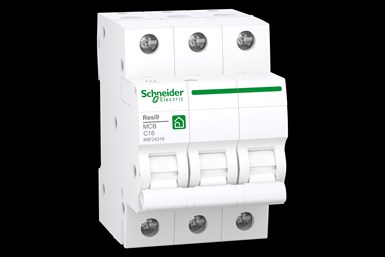
BASF will show miniature circuit breakers of a 100% chemically recycled nylon 6 based on pyrolysis oil from used tires. (Photo: BASF)
Asahi Kasei will discuss accelerated trials for commercializing nylon 66 resin made using a biomass-derived intermediate for production of automotive and electronics components. This comes from its new strategic partnership with Genomatica regarding hexamethylenediamine (HMD) based on biomass-derived raw materials (bio-HMD). Asahi Kasei currently uses fossil–derived HMD to make its Leona nylon 66 compounds. The strategic alliance with Genomatica provides Asahi Kasei with preferential rights to access the early volume of bio-HMD for evaluation as a nylon 66 feedstock.
BASF will show several examples of performance materials for sustainability, ranging from safe and durable nylons for high-voltage components of e-mobility charging infrastructure to enabling a miniature electrical circuit breaker (MCB) that uses 100% chemically recycled nylon 6 based on pyrolysis oil from used tires.
BASF will also launch a portfolio of high-performance, low-carbon-footprint materials including nylons, PBT and TPUs.
Solvay will highlight its new grades of Amodel PPA and Ryton PPS with recycled content (including used fishing nets), and will also feature reinforced engineering resins made with recycled glass or carbon fiber.
DuPont will feature its work on automotive multilayer cooling pipes, critical for thermal management, particularly with electric vehicles. The external layers are based on long-chain nylons 612, 610 and 1010, while the internal or tie layer is made of TPO.
Avient will launch an expanded portfolio of Complēt REC long-fiber reinforced composites using recycled resins. The new formulations can use varying levels of post-industrial recycled (PIR) content, from 25% to 100% for nylon 66 and 25% to 75% for TPU. This expands the product line that launched earlier this year with nylon 6 resin derived from reclaimed fishing nets.
As reported last month, other nylon suppliers with new high-performance and sustainable resins include Ascend Performance Materials, which will launch a half-dozen glass-filled nylon compounds with 20% to 40% biocontent, and is also introducing Vydyne Thermapluss, a new technology platform of high-temperature, high-ductile nylon 66 for clips and fasteners. The latter is designed as an alternative to DSM’s Stanyl nylon 46.
Ascend Performance Materials will also showcase new grades of HiDura long-chain nylons 610 and 612 with 40% to 60% biobased content for injection molded consumer goods and connectors, as well as copolymers for films that make packaging more durable.
Also from new Ascend will be Vydyne AVS nylon 66, said to be a novel solution to dampen noise, vibration and harshness (NVH) in electric vehicles. It is reportedly effective at damping high-frequency vibrations at the motor, which translates into an 80% reduction in cabin sound pressure.
DSM Engineering Materials will highlight its new Stanyl B-MB (Bio-based Mass Balanced), said to be the first 100% biobased high-temperature nylon—in this case, a new, more sustainable version of its flagship product, Stanyl nylon 46.
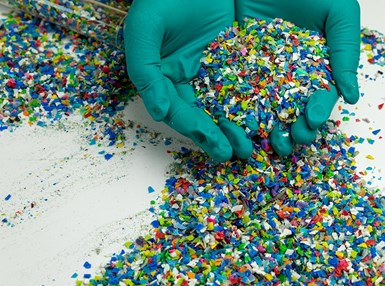
Avient’s Cesa Nox A4R specialized antioxidant formulation for recycling is said to stabilize polyolefins during processing, preventing typical defects like discoloration, gels, and black spots. (Photo: Avient Corp.)
Other Sustainable Engineering Resins
The Lehvoss Group and its subsidiary WMK Plastics will present sustainable materials from the Luvotech eco product line based on raw materials from mechanical recycling. The company says its technology makes possible the production of materials from PC/ABS to PEEK.
Lehvoss will also showcase its new Luvocom 3F eco PET products of 90% recycled PET, for use in both the FFF (Fused Filament Fabrication) and FGF (Fused Granulate Fabrication) 3D printing processes. It boasts excellent processability and properties for producing functional prototypes and production parts in industries such as automotive and medical.
Covestro will highlight PC resins and blends with up to 75% mechanically recycled material. The company will also present advances in design of batteries for electric vehicles via the use of PC resins and blends, which also can be used in associated parts such as battery modules, housing parts and crash absorbers, as well as control units in the electric powertrain. The properties of PC-based materials are also beneficial for applications in charging stations, wallboxes and battery home-storage systems.
DuPont will feature six new grades of its Hytrel polyester TPE under the brand Hytrel EcoB, based on up to 72% biomass. Launched as drop-in replacements for standard Hytrel, these grades are said to match properties such as strength, chemical resistance, processability, and overmolding capabilities, are aimed at consumer electronics and automotive; they can also be foamed. (As previously reported, DuPont is selling the majority of its polymer businesses to Celanese by year’s end.)
Avient will present the latest in its portfolio of Resound REC TPEs for improving the sustainability of exterior and underhood automotive components. Included are two grades of polyvinyl butyral (PVB) recycled from automotive glass.
Avient will also launch two new Edgetek PKE polyketone (PK) grades with non-halogen flame retardant, designed specifically for electric vehicle components, including connectors.
As reported last month, other resin suppliers with sustainable engineering resin offerings include Ineos Styrolution with its Luran S Eco B ASA containing up to 50% renewable (bio-attributed) content. The Eco B version of Luran S ASA is produced with renewable feedstock such as household-kitchen and wood waste.
Also new from Ineos Styrolution will be four grades of mechanically recycled Novadur Eco and Novadur Eco HH ABS resins for household appliances and automotive, respectively. Up to 100% PCR content is possible, and color options (e.g., red and blue) will be available in addition to black and white.
Lanxess High Performance Materials is presenting new Tepex composites based on recyclates or biobased raw materials and new halogen-free flame-retardant and hydrolysis-stabilized PBT compounds for high-voltage connectors.
Röhm GmbH will feature its growing portfolio of recyclable and durable Plexiglas acrylic molding compounds. With its latest special molding compound Plexiglas Optical HT, Röhm says the days of compromising between high optical quality and suitability for high long-term service temperatures are gone. This compound is said to cover both requirements, suiting it to contemporary product design, such as lenses for high-performance LEDs and long light guides.
Röhm will also highlight special molding compounds that have been developed to meet the changing design of vehicle front ends, such as long light guides, high-gloss panels and logos replacing chrome. For illuminated applications, Plexiglas Resist AG 100 compound is said to meet both optical and mechanical requirements. In high-gloss panels at the front of the vehicle, Plexiglas Hi-Gloss NTA-5 is a robust and resource-efficient alternative to components that need additional painting. It boasts high weather resistance, for long-lasting aesthetic properties.
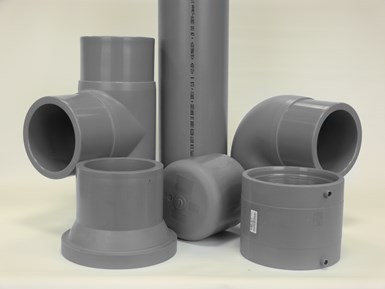
Borealis Bornewables polyolefins based on natural resources such as waste from pulp production are being used commercially as drop-in-replacement for crosslinked PE and PP pipe. (Photo: Borealis Group)
Advances in Polyolefins
Borealis will present new packaging and infrastructure applications of its new Bornewables portfolio of circular polyolefin products, manufactured with renewable feedstocks, such as waste from pulp production or residues from food-processing oils. Among the first successful commercial examples of the use of Bornewables PP is the new Aino packaging ice-cream tubs and lids launched by Finland’s ice cream manufacturer, Froneri. The new application is the result of Borealis’ partnership with Froneri and German global plastics packaging manufacturer Paccor, which injection molded the tubs and lids from monomaterial Bornewables PP with PP in-mold labels.
Also from Borealis will be drop-in replacements for crosslinked PE and PP pipes made from Bornewables polyolefins. Among these is Bornewable PEX used by pipe specialist Upanor, Apple Valley, Minn., to create the PEX Pipe Blue, which is said to be the world’s first pipe made from PEX with renewable feedstock. This also marks a major step forward to help customers in the building and construction industry achieve their sustainability targets in plumbing, heating, ventilation and air-conditioning (HVAC) installations.
Borealis has also partnered with Italy’s NUPI (parent of Houston-based NUPI North America), the first pipe supplier in Italy to use Bornewables in high-performance random copolymer PP pipes for plumbing and heating systems. The company has selected Bornewables PP for the next generation of its Niron Beta PP-RCT piping solutions for domestic plumbing, heating and HVAC systems designed to perform under higher stress conditions and temperatures.
LyondellBasell’s focus has been on mechanical recycling with its Circulen Recover PCR- and PIR-content polyolefin. The company will highlight examples of commercial products such as Samsonite’s new line of suitcases made from Circulen resin derived from PP yogurt containers. Chemically recycled products and biobased (e.g., cooking oil) feedstock resins, Revive and Renew, respectively, will be the firm’s focus in the second half of this decade, say LBI officials.
As previously reported, SABIC will highlight its new Bluehero program focused on boosting the performance of EV components. Bluehero materials examples include Stamax FR LGF-PP resins and SABIC FR PP compounds. SABIC has a new range of SABIC PP compounds and long-glass reinforced Stamax PP resins based on biorenewable and advanced recycled feedstock. Certified biorenewable based SABIC PP compounds are aimed at high-performance automotive applications, from bumpers and exterior trim to interior door panels, instrument panels and visible interior trim.
Certified bio-renewable based, long-glass reinforced PP Stamax resins are targeted at structural automotive applications such as front-end carriers, instrument-panel carriers, tailgates and door modules. The new SABIC PP compounds and Stamax resins reportedly can replace corresponding SABIC fossil-based grades with no need of lengthy technical validation, as they offer the exact same level of performance and quality.
ExxonMobil will demonstrate how it is “Advancing Sustainable Solutions Together” at the booths of industry leading machine manufacturers (OEMs) and distributors at K 2022. Demonstrations will cover packaging, automotive, consumer products, agriculture, hygiene and medical applications. The solutions will include advances in mechanical recycling and monomaterial structures and the company’s Exxtend chemical recycling technology. Packaging and engineered products manufacturer Berry Global is the first customer for certified circular polymers from Exxtend technology. Berry is using circular PP impact copolymer to manufacture containers of high-performance food-grade packaging.
ExxonMobil’s will also present the latest updates on its recently introduced Exceed S hexene-based LLDPE film resins targeted for use in food, industrial and agricultural applications. They boast unusual combinations of stiffness and toughness and reportedly provide opportunities to reduce the complexity of film formulations and structures while improving processing, converting, film performance and package durability.

Covestro’s PC-based materials, including grades with up to 75% recycle content, are aimed at EV charging stations, wallboxes and battery home-storage systems. (Photo: Covestro)
Additives Enable Recycling
Clariant will launch a new generation of sustainable high-performance antioxidants. Included is AddWorks PKG 906 Circle, a proprietary stabilizer that reportedly enables significant increases in recycled content of polyolefin films. It allows introduction of reground scrap at a rate of up to 20% or more without any loss in quality or process efficiency, thus creating considerable benefits both in BOPP and cast and blown PE film production. It is said to offer outstanding protection to the polyolefin resin during processing, without loss of transparency or additional yellowing.
BASF will highlight IrgaCycle, its new range of additive blends that improves mechanical recycling of polyolefins and mixed polymers. These ready-to-use granulated, non-dusting formulations reportedly ensure safe and easy dosage.
Avient will present its new Cesa Nox A4R polyolefin antioxidant for recycling. This specialized formulation is said to stabilize polyolefins during processing, preventing discoloration, gels and black spots during multiple conversion steps and recycling loops. Protecting PCR from degradation in this way can help achieve higher quality levels of recyclate and better end-use products and improve the quality of the overall recycling stream due to its long-term stabilizing effect.
SI Group will be launching a new additives brand for plastics recycling. The first products will be stabilizers for recycled polyolefins and PET that are designed to allow use of more recycled materials without compromising performance in the end application. SI Group will also present a new masterbatch grade of Weston 705 liquid antioxidant and Ultranox LC stabilizers.
Denmark’s Palsgaard will highlight its five-year-old Einar polymer additives, which are also manufactured in Mexico and are now available in North America. Einar additives are all plant-based and food-grade, and they serve as antistatic additives for PE and PP. Also offered are antifog additives for polyolefins and mold-release lubricants for injection and compression molding of PE, PP and PVC.
China’s Unitechem will highlight the newest additions to its extensive range of UV stabilizers. The company, which claims to be the world’s largest producer of UV stabilizers, will have new offices in North America and warehousing facilities here within a year’s time. (They have been selling in the U.S. through a Morris Plains, N.J., office for 10 years.). The company’s core business is HALS (hindered-amine light stabilizers), but they also have UV absorbers as well as some antioxidants and stabilizer blends.
In 2020, Unitichem launched LS-119 HALS for automotive applications. Coming next year is LS-4040 HALS, a low-molecular-weight product for thick-walled automotive components. They have also been developing a new process to make “safer” versions of benzotriazole UV absorbers.
Related Content
Tracing the History of Polymeric Materials -- Part 30: Polyurethane
In the world of polymers, polyurethane chemistry is probably the most versatile. This a resulted in a wide range of products made from these materials and given the industry the flexibility to respond to the progressive march of regulatory concerns.
Read MoreNon-Fluorosurfactant Peroxide Curable Fluoroelastomers
Solvay launches new high-performance Tecnoflon FKM without use of PFAs used as process aids.
Read MoreBiobased TPU for Broad Range of Applications
BASF’s Elastollan N contains 50% renewable raw material.
Read MoreThermoplastic Elastomers With Recycled Content for Automotive Applications
Avient announced new grades of TPE to meet demand for recycled content.
Read MoreRead Next
K 2022 Preview: Engineering Materials for Sustainability and E-Mobility
Materials that are sustainable yet offer equal performance to their fossil-based counterparts will be prominent at K 2022.
Read MoreTroubleshooting Screw and Barrel Wear in Extrusion
Extruder screws and barrels will wear over time. If you are seeing a reduction in specific rate and higher discharge temperatures, wear is the likely culprit.
Read MoreUnderstanding Melting in Single-Screw Extruders
You can better visualize the melting process by “flipping” the observation point so that the barrel appears to be turning clockwise around a stationary screw.
Read More



















.png;maxWidth=300;quality=90)




